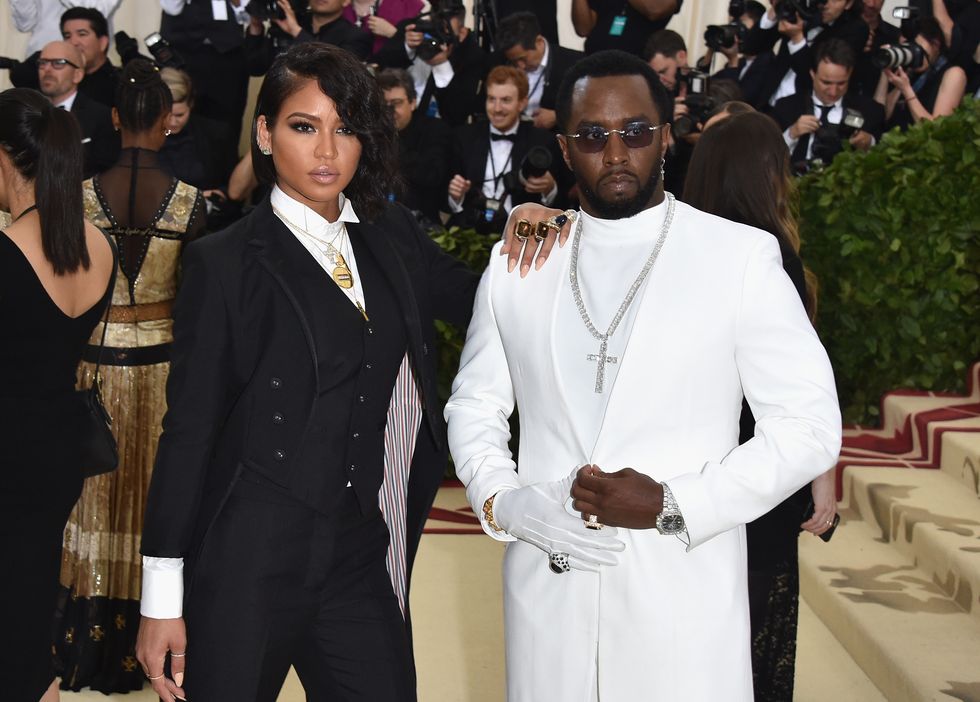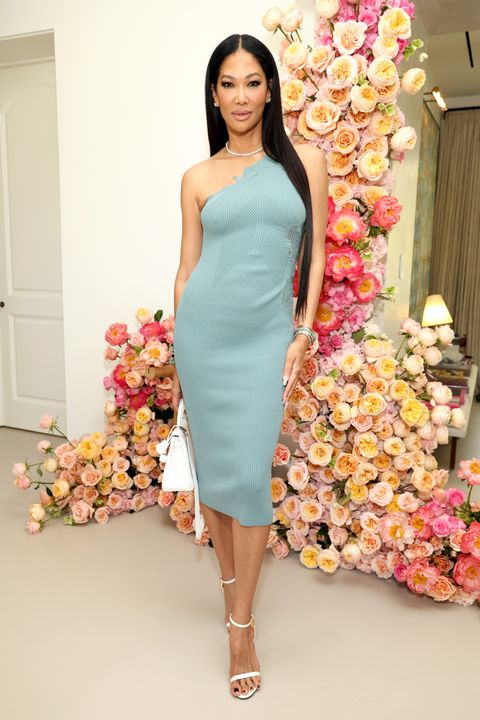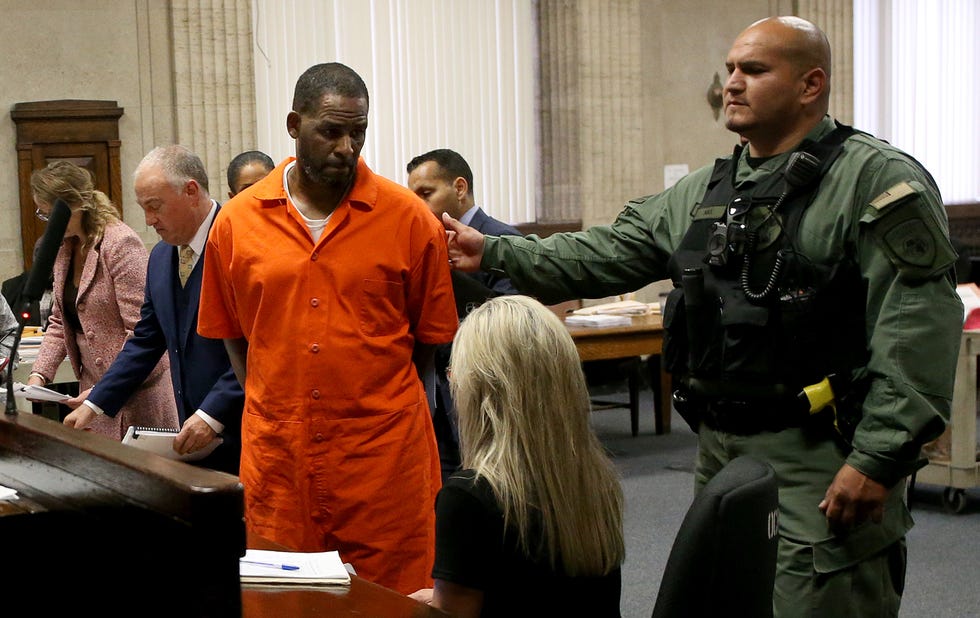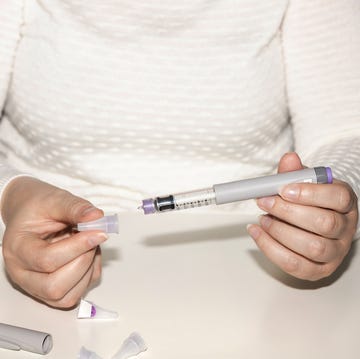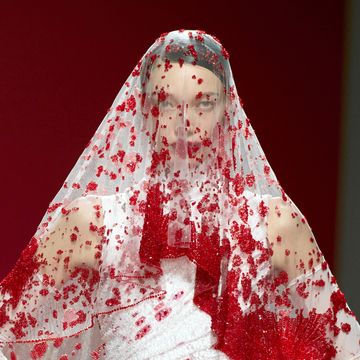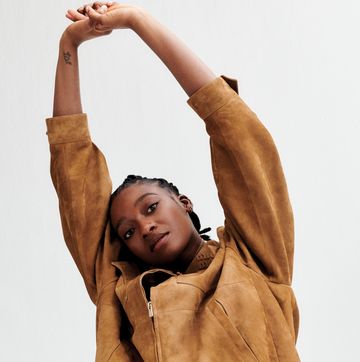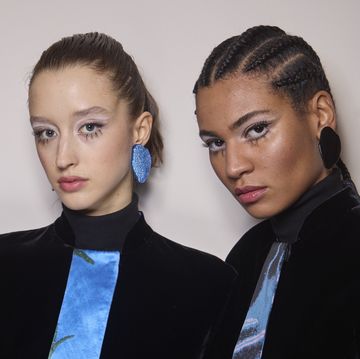It took just one day for the 35-page lawsuit to be settled. On November 16, 2023 singer Cassie, real name Casandra Ventura, sued her former partner and record label boss, Sean ‘Diddy’ Combs, alleging over 13 years’ worth of abuse, including sex trafficking and sexual assault. The levels of coercion, control, humiliation and violence endured by the singer since meeting Combs at the age of 19 in 2005 is utterly shocking. ‘After years in silence and darkness I am finally ready to tell my story,’ Cassie said, in a statement given to the New York Times, ‘and to speak up on behalf of myself and for the benefit of other women who face violence and abuse in their relationships’.
Despite initially denying the accusations, billionaire Combs – who also goes by the name of ‘Love’ – agreed to a settlement a day later on November 17. ‘We have decided to resolve this matter amicably,’ Diddy said in a statement the following day. ‘I wish Cassie and her family all the best. Love.’ Since then, he has been served two further sexual assault lawsuits by two separate women, both of which he denies. Last week, he issued a statement on Instagram:
‘Enough is enough. For the last couple of weeks, I have sat silently and watched people try to assassinate my character, destroy my reputation and my legacy. Sickening allegations have been made against me by individuals looking for a quick payday.’
Claims like Cassie’s against powerful men in the music business are nothing new. There’s the alleged grooming of a 14-year-old Priscilla by Elvis Presley in 1959 and the Rolling Stone bassist Bill Wyman courting 13-year-old Mandi Smith in 1984. He was 47. ‘She took my breath away… she was a woman at thirteen,’ he wrote in his 1997 autobiography, Stone Alone. More recently, there’s been R Kelly – say no more. While Aerosmith’s Stephen Tyler is facing questions over historic sexual assault allegations (Tyler has issued a denial over all accusations). In a case of a rare guilty verdict, British MC Solo 45 (real name Andy Anokye) was convicted and sentenced in 2020 to 24 years for waterboarding, interrogating and raping four women. His sentence was increased to 30 years in 2021 after the Court of Appeal ruled that his initial sentence was ‘unduly lenient’.
FIND OUT MORE ON ELLE COLLECTIVE
The music industry is, in fact, so entrenched in sexism, inappropriate behaviour and serious assault that earlier this year a Misogyny in Music inquiry was set up in Parliament by the Women and Equalities Committee. Former Radio 1 DJ Annie Macmanus and X Factor alumni Rebecca Ferguson are among those who have given evidence.
‘[Misogyny] is the tip of the iceberg of the things that are happening behind the scenes. If you read the unredacted version of my written evidence, you will see how sinister music has become. What is scary is that it will only get worse if the Government doesn’t act,’ Ferguson told the committee, highlighting exploitation, assault, bullying, corruption, and human rights abuses as part of her evidence. ‘It's infuriating the amount of women who just have stories of sexual assault, they just had to bury them and carry them, it's just unbelievable,’ Macmanus told the inquiry. ‘So I do think if something were to happen, if one person were to speak that had enough profile where it got media attention, there could be a kind of tidal wave of it. Definitely.’
And here Macmanus gets to the heart of the problem. In the aftermath of the #MeToo movement, more women have coming forward. But history has proved that for women who do speak up, it’s an incredibly slow, painful and often re-traumatising task; I empathise with why so many are reluctant to do so.
It’s not just the victims. Those in the industry witness and are party to – or aware of – behaviour that is not only immoral but illegal. Yet so few people report it. Partly from fear of losing a job or other retaliations, but also possibly because there are so few systems in place within the music and creative industries to report such behaviours. During my time as a music journalist, I’ve heard about countless ‘handsy’ (at best) editors, artists and executives. Yet I’ve only had a HR department in three of my eight staff jobs. Even if I had information, I had nowhere to take it. If you do attempt to report – does anything happen? Lily Allen was willing to discuss her own experiences of assault by a record industry exec, yet, as far as we know, her alleged perpetrator is still at large. Why isn’t more being done?
Reactions to Cassie’s allegations were initially relatively muted within the music industry. The singer Ke$ha changed the lyrics to her 2009 single TikTok while performing in California two days after the suit was settled. ‘Wake up in the morning feeling like P. Diddy’, became ‘Wake up in the morning feeling just like me’. Other artists previously signed to Combs’s Bad Boy Records also spoke out in support of Ventura, including Danity Kane’s Aubrey O’Day, who echoed Macmanus’ statement. ‘It isn’t easy to take on one of the most powerful people in this industry,’ she said. ‘May her voice bring all the others to the table, so we can start having more transparent conversations about what is actually happening behind the scenes.’ 50 Cent predicted more women will talk and is apparently developing a documentary about Combs and there was a cryptic comment on Instagram Stories from Kimora Lee Simmons, who in a 2004 interview with New York magazine accused Diddy of threatening to punch her in the stomach while pregnant.
The world of business reacted more decisively, with brands Combs worked alongside, such as Diageo and Pound Cake, almost immediately severing ties. A New York school that he had pledged $1 million to has also ended its partnership with him. Combs himself, last week stepped down as chairman of Revolt, the cable TV network he co-founded in 2013 — albeit temporarily. But, despite reaching a settlement, Combs’s attorney Ben Brafman told the Independent that this is not an admission of guilt. ‘Just so we’re clear, a decision to settle a lawsuit, especially in 2023, is in no way an admission of wrongdoing. Mr. Combs‘ decision to settle the lawsuit does not in any way undermine his flat-out denial of the claims. He is happy they got to a mutual settlement and wishes Ms. Ventura the best.’
And so it goes, another rich, famous, powerful man settles a lawsuit and the subject is muted.
In 2018, the Washington Post wrote a lengthy article about how people in power were wilfully blind to Kelly’s behaviour. Barry Weiss, the chief executive of Kelly’s record label, Jive, from 1991 to 2011, told the Post he never talked to Kelly about his behaviour because it didn’t concern him. ‘I was a record company putting out R. Kelly’s records,’ said Weiss. ‘That was all I knew. I wasn’t involved in his criminal cases. We were a record company, for God’s sakes.’ The founder of Jive, Clive Calder, was a little more contrite. ‘But I’m not a psychiatrist, and this guy is a troubled guy. Clearly, we missed something.’
The second crucial issue here, raised in kind by Ferguson, is the problem with prosecuting sex crimes. It is incredibly hard to get a rape case to court – let alone win it. According to Rape Crisis, 68,109 rapes were recorded by police in England and Wales between July 2022 and June 2023. Charges were brought in just 2.2% (1,498) of cases. That means only two out of 100 rapes resulted in someone being charged – let alone convicted. And those able to get a case to court can expect to wait over two years for it to complete.
So Cassie’s options: in a civil court, a conviction is reached on a balance of probability. The accuser needs to prove that it is 51% likely that the defendant is guilty. But if Cassie takes it to criminal court, she must prove beyond reasonable doubt that she’s telling the truth. And that could take years. There’s a much higher threshold of truth in a criminal court and it is therefore much, much harder for victims of rape and sexual assault to obtain a positive verdict. Most rape and assaults take place in private with little evidence, making it difficult to prove – it becomes your word against theirs. There are other factors too: a lack of police resources, the time it takes to get to court, and a lack of support for victims themselves. Such low rates of conviction are hardly an incentive for men to stop committing these crimes – regardless of their job, role or position in society.
Cassie was able to avoid a long, humiliating and potentially unsuccessful court case, receive compensation of sorts and let people know her truth about a man she claims has been allowed to commit crimes for decades without reproach.
However, the naming and shaming of Combs in a lawsuit feels unlikely to change much. Even the film industry’s initially galvanising #MeToo moment seems to have stalled – despite the downfall of Weinstein. There have been so few other convictions, with cases being settled or no charges being brought against the accused. All the while, rape cases rise.
Again from Rape Crisis, the most recent report published by the Office of National Statistics shows rape offences have increased dramatically in England and Wales since 2012/13. 1 in 4 women are raped or sexually assaulted as an adult and the overall statistics in England and Wales found that 85,000 women experience rape, attempted rape or sexual assault every year.
It's not only the music industry that has a problem – it’s human beings. Yes, men are also subject to rape but it is overwhelmingly women and trans people who are victims and it is overwhelmingly men committing these crimes. Women need to feel safe reporting crimes to the police – one police officer per week is currently accused of rape, according to the Bureau of Investigative Journalism and Channel 5. Until we're able to support victims – and believe them — until the criminal justice system can find a fairer way to convict rape and sexual offences, the music industry and the world at large has a huge problem. And no amount of hashtags can help that.
Those affected by rape or sexual abuse can contact Rape Crisis on 0808 802 9999 (England and Wales) or on 08088 01 03 02 (Scotland).
ELLE Collective is a new community of fashion, beauty and culture lovers. For access to exclusive content, events, inspiring advice from our Editors and industry experts, as well the opportunity to meet designers, thought-leaders and stylists, become a member today HERE.

